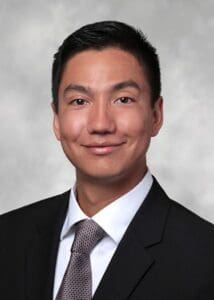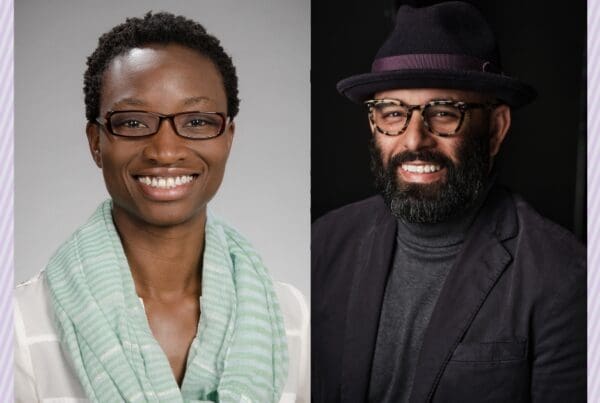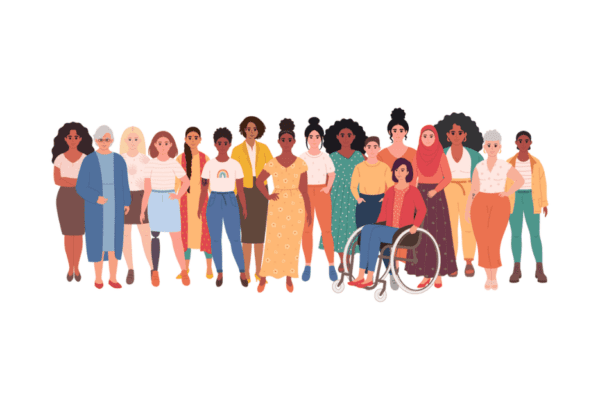November 8 is National First-Generation College Day, a celebration of the hard work and successes of first-generation college students. The day also recognizes the barriers many underrepresented people and people from traditionally marginalized communities face in getting into higher education.
Being a first-generation college student has plenty of highs and lows, challenges and opportunities, but being a first-generation medical student has even more. We asked some first-generation medical students and residents at UW School of Medicine and Graduate Medical Education what being first gen means to them.

Joseph Nelson
Joseph Nelson, MD, Resident in the University of Washington Family Medicine Residency, President of the Network of Underrepresented Residents and Fellows
“As a first-generation student, I believe I am the product of my ancestors. A dream born in resilience and strength from those who came before me. Those who survived genocide, historical traumas, and the many obstacles that life can throw your way. I am a proud citizen of the Confederated Tribes and Bands of the Yakama Nation and to be first gen is an honor, and one that carries the hopes and dreams that my descendants will achieve not just the same, but more.
My interest in medicine was born from an early exposure to the field as a high jumping basketball player that suffered a humbling knee injury. With that experience, I developed a deep respect for medical professionals and saw myself in their shoes one day. After years of study and a variety of scholarship, mentorship and volunteer opportunities, I realized that medicine was not just a dream but a reality.
On that journey, I felt the weight of imposter syndrome at every turn. I never quite felt like I belonged, but I was determined. With each success my future continued to unfold. I can still recall the overwhelming joy when I had been accepted to the UW School of Medicine, the joy in opening my residency match letter and the joy on the first day of my intern year.
Now, as a Family Medicine physician I aim to serve a Native American community and those who are underserved in medicine. I look to deliver babies, keep children and elders healthy, and engage with the community as often as I can. I have a love for teaching and hope to work with medical students in my career. I will always continue to offer mentorship for those with a dream.”

Emina Gulbis
Emina Gulbis, Medical Student, Idaho WWAMI
“Being a first-generation student is a big part of what makes me who I am. My family immigrated to the United States as war refugees in the aftermath of the Bosnian war. When we arrived, we had little to nothing, so to go from that to being not only a first-generation college graduate but a first-generation medical student is easily the greatest accomplishment of my life.
I currently am a first-year medical student at UW School of Medicine. I originally became interested in the field because my mom is a medical assistant and would frequently come home and share stories about her day with us over family dinners. As I progressed through school and various extracurricular activities, my interest in science and medicine continued to grow.
I think one of the most challenging parts of being a first-generation student is the feeling of imposter syndrome. I know that many people have feelings of imposter syndrome at various points in their life but being a first-generation student amplifies that. The most rewarding part of being first-generation is seeing how much my family and I have been able to accomplish over the last 20 years.
My goals for the future include graduating with my MD degree from UW School of Medicine in 2025 and going onto residency. I am currently interested in pursuing internal medicine and emergency medicine residency programs. When I am not working in the hospital, I would like to volunteer as a physician in free clinics that serve underserved and immigrant patient populations. Prior to medical school, I spent two years volunteering in a clinic that serves this patient population. Being able to connect with patients and discuss our origin stories was very eye-opening, so being able to continue to do this while providing essential medical care would be extremely rewarding.
As a first-generation student, I often felt like I didn’t want to share that part of my life because I didn’t want to be perceived as different from my peers. However, I have come to realize that being a first-generation student doesn’t limit what I can do. In many ways, it provided more opportunities for me to connect with others that came from similar backgrounds and showed me the values that being first-generation provided to my life.”

Johren Carpenter
Johren Carpenter, Medical Student, Montana WWAMI
“To me, being first gen means having to take the initiative to go the extra mile. It means having to figure it all out on your own.
I have always felt a passion for rural medicine. I have been working as a certified nurses’ assistant (CNA) since I was 15 years old, and my perspective of medicine has continually evolved over the past seven years. I became a CNA because my mom worked in healthcare, and I wanted to be just like her when I grew up. I wanted to serve the community who helped raise me, just as she did. When she passed away, I began to emulate her caring, driven nature and knew that medicine was the best field for me.
Managing my family’s needs and my education has been the most challenging part of being first gen. My brother is a quadriplegic, and I have taken over being his primary caregiver while also attending medical school. However, seeing him so happy and succeeding in school has been incredibly rewarding for me. He is getting to be a normal 20-year-old who goes to football games and parties. While my time spent studying for school is less than my peers, seeing those I love most being truly happy is the best feeling in the world.
I hope to finish medical school, return to rural Montana and serve my community in a way that is empathetic, patient-centered and welcoming to all walks of life. I hope to help my brother build a secure future for himself while also achieving my own dreams.”
Advice for Future First Gen Students
Our interviewees share their tips and learnings for students from underrepresented backgrounds who want to go to college or medical school.
Joseph Nelson: “If you’re a first gen student or someone just beginning their journey, know that you can do it and that by doing so, you are paving the path for those that come after you. Your hard work and determination will not only make a difference in your life, but a difference in the lives of so many others. The road will not be easy, but for many of us, it never really was. You might be the first, but you will not be the last.”
Emina Gulbis: “My advice for other first-generation students as well as prospective ones is that you can do anything you want as long as you work hard and never give up. There will be hard days, but as long as you push through those and continue striving toward your goals you will make it! Also, use all the resources available to you such as career advisors, professors, peers, etc. I couldn’t have made it to where I am without the help of some amazing mentors.”
Johren Carpenter: “Use all the resources available to you and don’t be afraid to ask for help! People (especially fellow first gens) want to see you succeed. Live a life that would make both 8-year-old you and 80-year-old you proud.”


